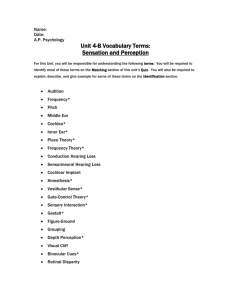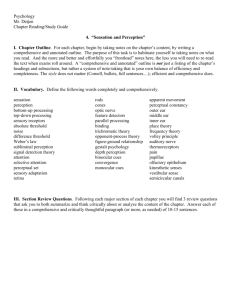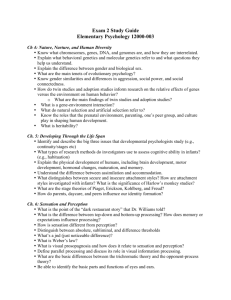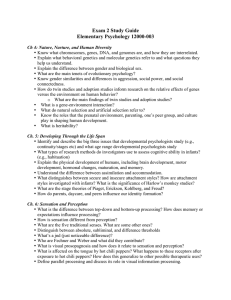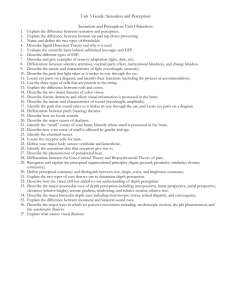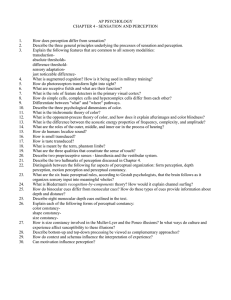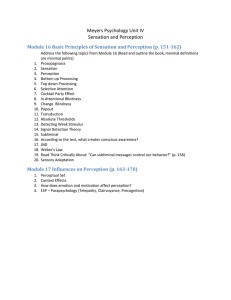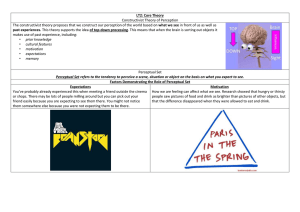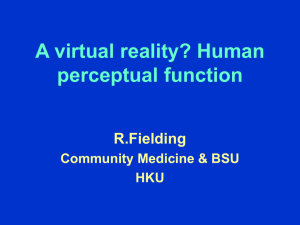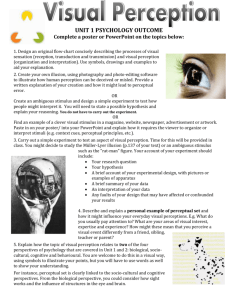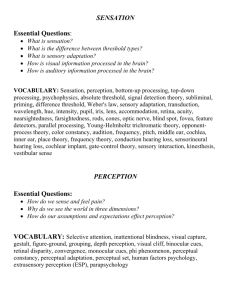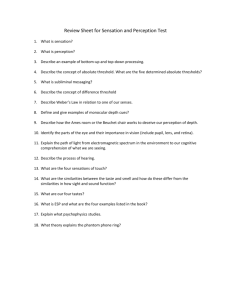AP Psychology - Doral Academy Preparatory
advertisement
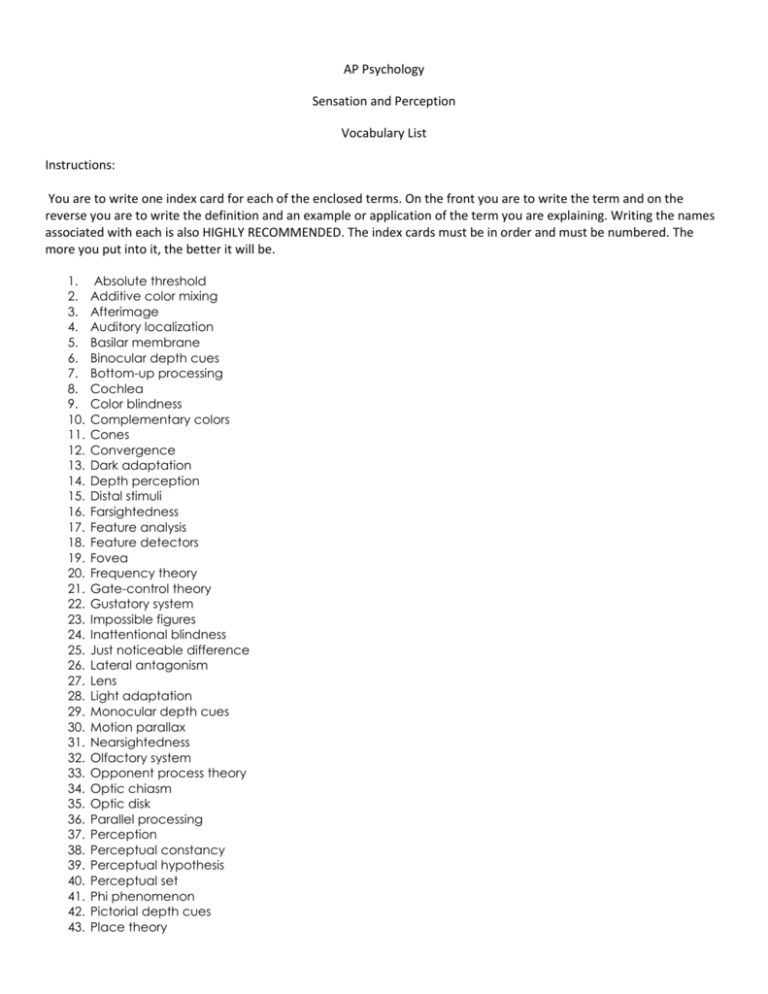
AP Psychology Sensation and Perception Vocabulary List Instructions: You are to write one index card for each of the enclosed terms. On the front you are to write the term and on the reverse you are to write the definition and an example or application of the term you are explaining. Writing the names associated with each is also HIGHLY RECOMMENDED. The index cards must be in order and must be numbered. The more you put into it, the better it will be. 1. 2. 3. 4. 5. 6. 7. 8. 9. 10. 11. 12. 13. 14. 15. 16. 17. 18. 19. 20. 21. 22. 23. 24. 25. 26. 27. 28. 29. 30. 31. 32. 33. 34. 35. 36. 37. 38. 39. 40. 41. 42. 43. Absolute threshold Additive color mixing Afterimage Auditory localization Basilar membrane Binocular depth cues Bottom-up processing Cochlea Color blindness Complementary colors Cones Convergence Dark adaptation Depth perception Distal stimuli Farsightedness Feature analysis Feature detectors Fovea Frequency theory Gate-control theory Gustatory system Impossible figures Inattentional blindness Just noticeable difference Lateral antagonism Lens Light adaptation Monocular depth cues Motion parallax Nearsightedness Olfactory system Opponent process theory Optic chiasm Optic disk Parallel processing Perception Perceptual constancy Perceptual hypothesis Perceptual set Phi phenomenon Pictorial depth cues Place theory 44. 45. 46. 47. 48. 49. 50. 51. 52. 53. 54. 55. 56. 57. 58. 59. 60. 61. 62. 63. 64. 65. Proximal stimuli Psychophysics Pupil Receptive field of a visual cell Retina Retinal disparity Reversible figure Rods Sensation Sensory adaptation Signal-detection theory Subjective contours Subliminal perception Subtractive color mixing Top-down processing Trichromatic theory Visual illusion Linda Bartoshuk Gustav Fechner Hermann von Helmholtz David Hubel and Torsten Wiesel Ronald Melzack and Patrick Wall Max Wertheimer
